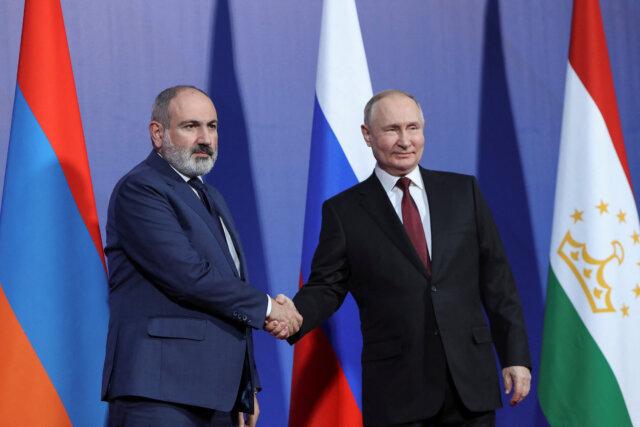Moscow has branded as “unacceptable” remarks by Armenia’s prime minister in which he blamed Russian peacekeepers for failing to stop an offensive by Azerbaijan—his nation’s perennial foe—in the flashpoint Karabakh region.
“Armenian Prime Minister Nikol Pashinyan’s [remarks] contain unacceptable attacks on Russia and are a cause for disgust,” Russia’s Foreign Ministry said in a Sept. 25 statement.





